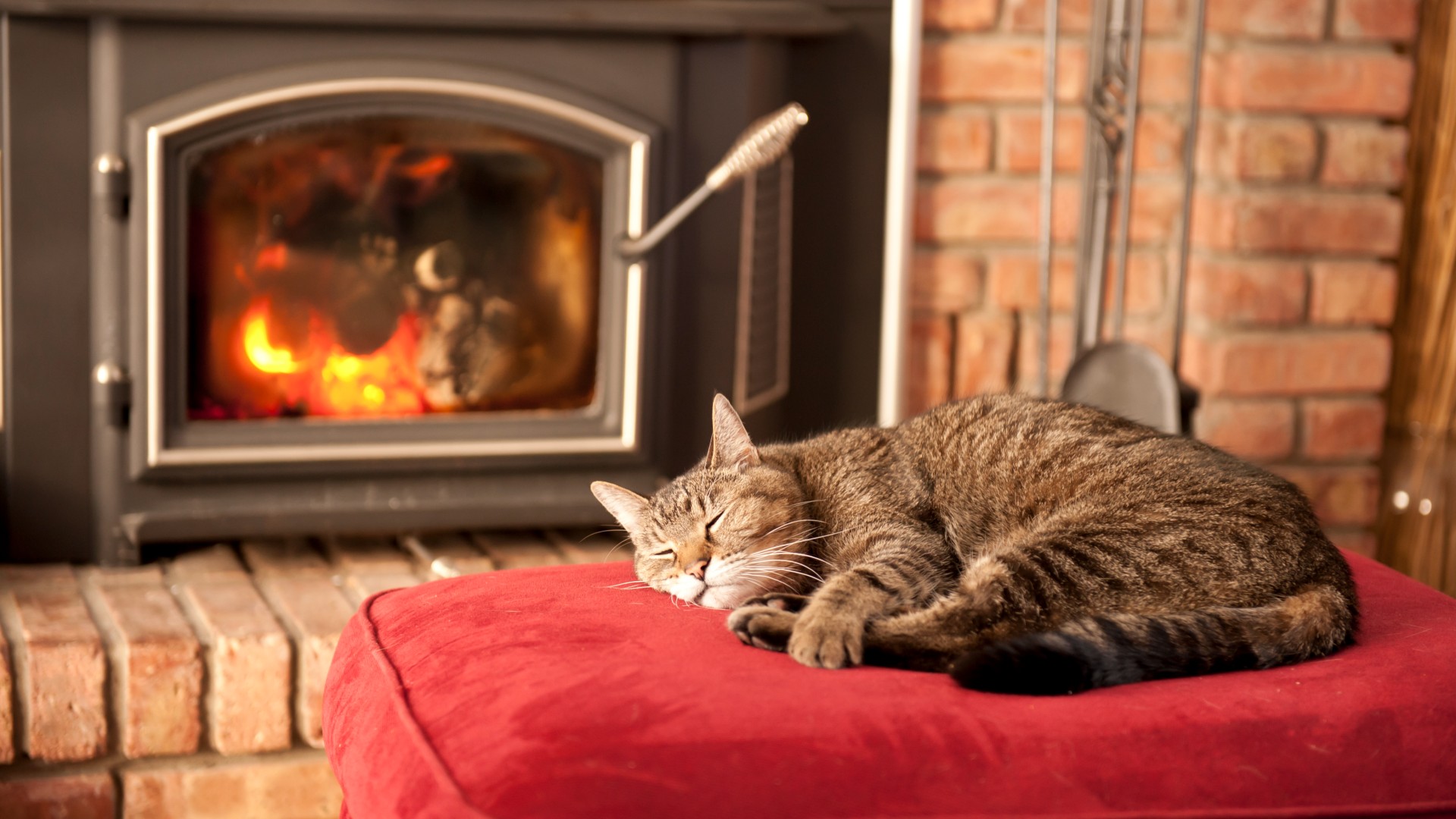This trainer explains why you should never touch a sleeping cat
You don’t want to disrupt your kitty while they’re relaxing and recharging their batteries

Get the best advice, tips and top tech for your beloved Pets
You are now subscribed
Your newsletter sign-up was successful
Did you know that you should never pet a sleeping cat? It's true!
Why do cats sleep so much? is a question many cat parents have asked over the years, as they find their feline friends curled up in one of the best cat beds for an average of about 15 hours each day.
It’s partly genetic. Cats are crepuscular animals, meaning that they’re most active at dusk. However, they can break up their sleep in the daytime in order to spend some time with their humans.
When your cat’s asleep, it can be tempting to wake them up for cuddles or play. However, it’s not a good idea to touch a sleeping cat, as Maria Kozlova, a certified cat trainer and behaviorist, and founder of Cats Explained, shared in an Instagram post.
A post shared by Maria | Cat Behavior Expert ⭐️ Cat Training (@cats.explained)
A photo posted by on
“Cats have two types of sleep,” Kozlova explains, “Deep and light. During deep sleep, they truly relax and recharge their batteries. Interrupting this phase can cause stress and affect their health, and it simply can scare your cat.”
Deep sleep helps keep your cat stay strong, both physically and mentally. And they might be so sleepy that they won’t even wake if you’re being a bit noisy around them – so there’s no need to tiptoe!
While it’s best not to touch your cat when they’re asleep, you’d be forgiven for being tempted. As Kozlova continues, “When your cat is in deep sleep, it might curl up into a cute little ball. His paws, whiskers, or tail might wiggle a bit, and you might see its eyes moving under its eyelids.”
Get the best advice, tips and top tech for your beloved Pets
Sure, your kitty might look too cute for words when they’re snoozing, but it’s a good idea to let them keep sleeping. Then, when they wake up, they’ll be ready to play!
However, if you notice any changes in your cat’s sleeping habits – perhaps they’ve always enjoyed sleeping but they’ve been sleeping a lot more recently – it’s a good idea to consult your vet. When cats are unwell, they may be less active. And particularly if your feline’s eating or drinking habits change, too, you should get things checked out at the vet.
It may not be anything serious. Cats can begin to sleep more as they get older, for example. But it’s better to be safe than sorry, so any changes should be checked out – if nothing else, it’ll put your mind at rest.
If you’re having the opposite problem, and you find yourself asking questions like ‘Why won’t my cat sleep?’ you might find this article helpful.

Adam is a freelance journalist specialising in pets, music and culture, and mental health and wellbeing. He investigates and writes the large majority of news on PetsRadar, and collaborates with veterinary experts to produce informative pet care content.
Adam has a journalism degree from Southampton Solent University and a masters degree in Magazine Journalism from Cardiff University. He was previously senior editor at dog advice website DogTime.com, and has also written for The Independent, GoodToKnow and Healthline.
He owns two rescue cats, Bunny and Dougie, and has also previously had a rabbit, fish and Roborovski dwarf hamsters.
